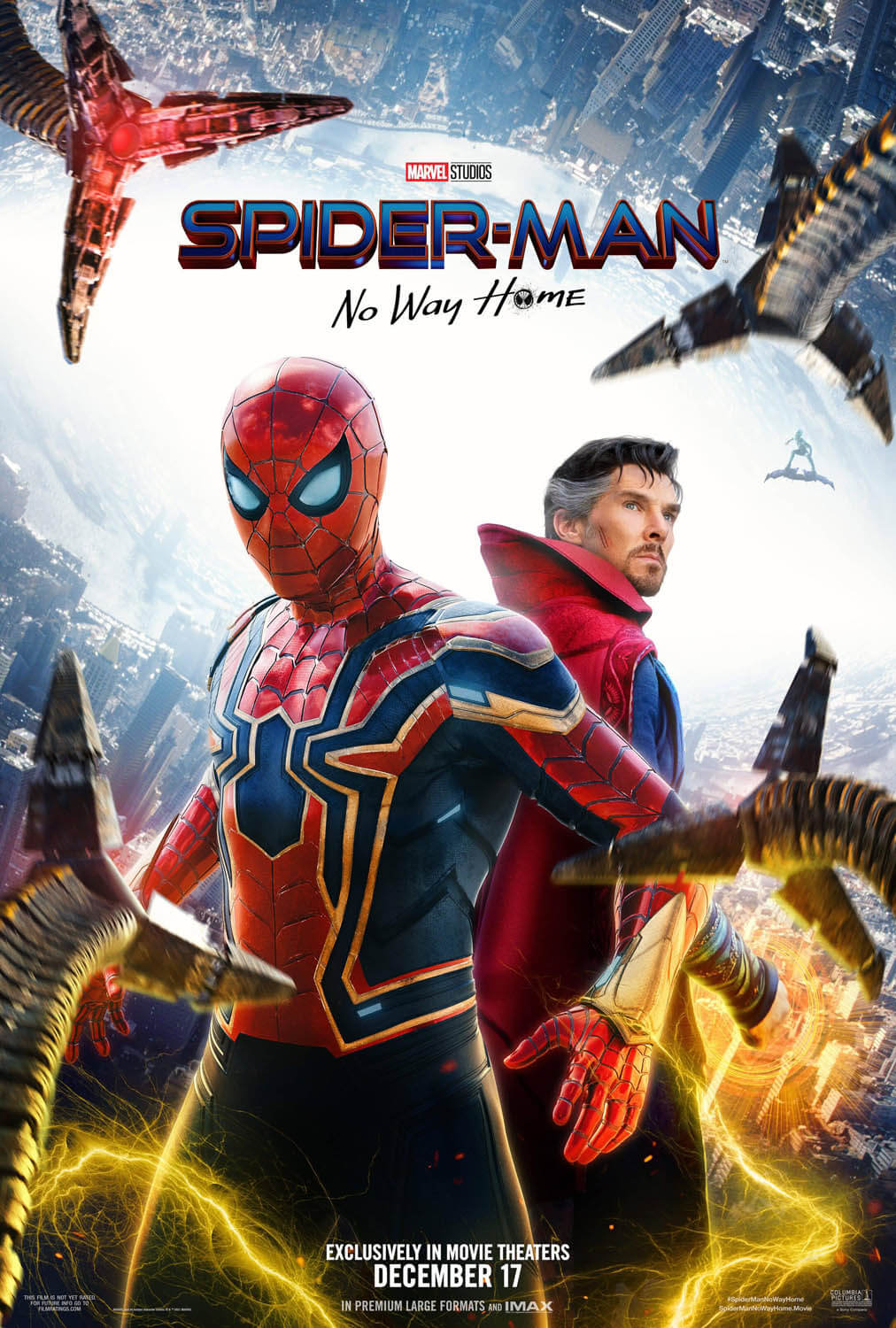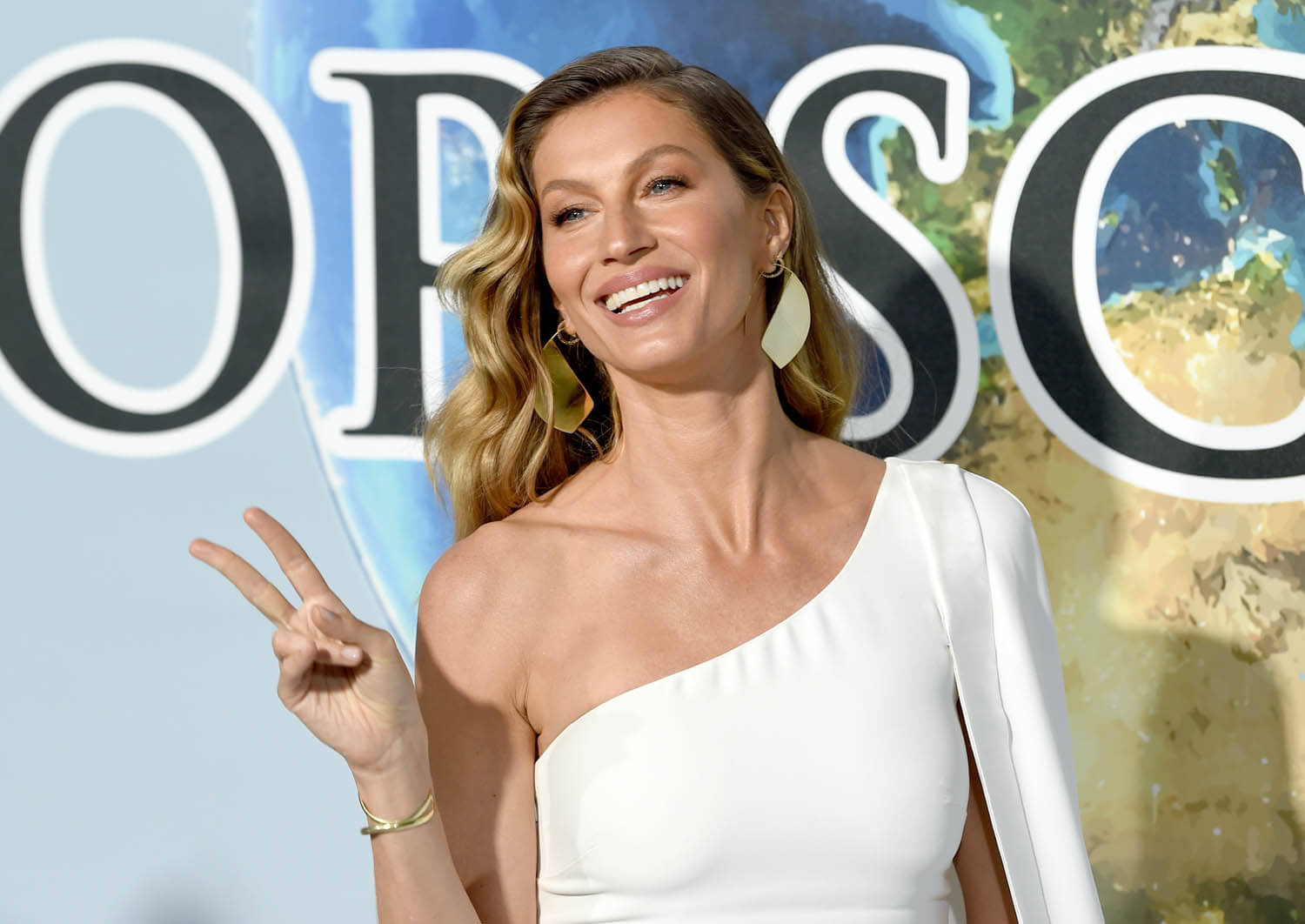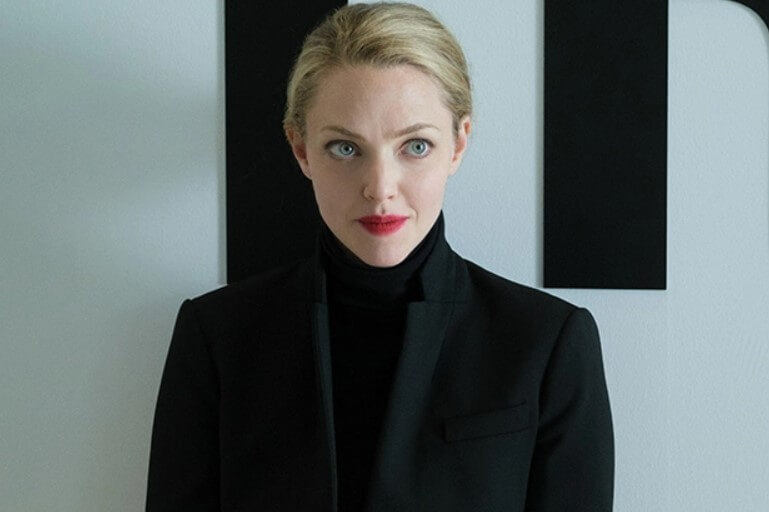Spider-Man: No Way Home brings Peter Parker full circle



Mild spoilers, nothing big but a little more context than the trailers.
Marvel movies typically go one of two ways: they start out great but fall apart in the third act, or they start slow but end strong. Spider-Man: No Way Home, directed by Jon Watts, falls into the second category.
Picking up right where Spider-Man: Far From Home ended, Peter Parker (Tom Holland) is literally caught out when J. Jonah Jameson (JK Simmons) not only accuses him of murdering Mysterio, but also exposes Peter’s identity as Spider-Man. A few weeks later, Peter starts his senior year of high school as public enemy #1, under investigation for Mysterio’s death and crashing with Happy Hogan (Jon Favreau) after he and Aunt May (Marisa Tomei) are chased from their home by unwanted public attention. But worse, MJ (Zendaya) and Ned (Jacob Batalon) are named as Peter’s “accomplices” which means all three of them get rejected by MIT, their mutual dream school. In an effort to at least spare MJ and Ned his fate, Peter goes to Doctor Strange (Benedict Cumberbatch) for help making the world forget that Peter Parker is Spider-Man.
Doctor Strange is always a fun character to throw in with other Avengers because he has such a different perspective on the world than anyone else, and while he’s never a villain, he also isn’t necessarily there to support anyone else’s agenda. This comes up in Infinity War but is most acutely realized, thus far, in No Way Home, where Strange’s legitimate attempt to help Peter comes with staggering consequences that lead to Strange proposing a clean-up plan Peter can’t get on board with. When the spell goes wrong—because Peter won’t stop talking as Strange is casting it—instead of making people forget Peter Parker is Spider-Man, it draws anyone who knows Peter Parker is Spider-Man into the MCU’s universe. The multiverse is here, it’s open for business, and Peter quickly finds himself surrounded by a cohort of villains who know him, but whom he does not know.
Strange’s solution is simple: send everyone back to their home universe. But this means dooming these villains to return to the moments of their deaths, all at the hands of their respective Spider-Man. Ultimately, Peter can’t knowingly send these people to die without at least trying to “cure” them (conveniently, most Spider-Man villains have some external reason for being a villain that some science goo or a microchip can fix). Strange doesn’t agree, but Peter is determined to try and clean up his mess. Spider-Man movies always come loaded with some variation of the “with great power, comes great responsibility” theme, but this is the first time since Sam Raimi’s Spider-Man 2 that hero’s thesis statement feels so grounded in the story and vital to the characters. Peter is truly wrestling with his responsibility—with his culpability—toward these villains to whom he inadvertently gave a second chance.
The first half of No Way Home is slow and uneven, borderline bloated with fan service, and at times the film sags under the weight of the multiverse. There are a LOT of characters to accommodate, they do not all get equal treatment in the script (penned by Chris McKenna and Erik Sommers), and No Way Home relies heavily on the audience’s memory of past Spider-Man films. But the core trio of Peter, MJ, and Ned grounds the film in a sweetness and camaraderie that makes the climax all the more poignant, and the kids’ interactions with Strange are spiky and fun. There is just enough charm to coast until the final half-hour kicks and No Way Home goes right for the throat. This film has a KILLER ending, one of the most genuinely heartbreaking moments in the entire MCU. For anyone who complains of a lack of consequences in Marvel movies, No Way Home is ALL consequence, NO relief.
Because Tony Stark almost immediately scooped him up off the street, this Peter Parker has not been the “poor Peter” of the comics, both literally, with Stark floating him free tech and private jets, and figuratively, as Peter had a fairy godfather to make things okay whenever situations got sticky. But there is no Tony Stark now, and Doctor Strange isn’t here to be anyone’s mentor or friend. That change in circumstance lands hard in No Way Home, where you can feel the lack of options and opportunities closing around Peter until he is backed into the worst possible corner. Watts, who has had a deft hand with the emotions of his young characters and performances of his young cast all along, gets the best performance yet from Tom Holland as Peter’s Stark-protected adolescence ends and Peter faces very hard choices and very real consequences for his actions.
People will argue forever about which is the best Spider-Man movie and who is the best Spider-Man actor, but for my money, it’s the last half hour of Spider-Man: No Way Home, and Tom Holland, as you can practically see Peter age a decade in a single moment. You really feel the “great responsibility” Peter wears as Spider-Man, and for the first time since he was introduced into the MCU, it doesn’t seem fun or cool to be Spider-Man, it seems like a sh-t gig. However ungainly the first part of Spider-Man: No Way Home is, the ending brings the entire trilogy full circle and draws a line between the Spider-Man of the Avengers, who may as well have been play-acting being a hero, and the Spider-Man of 2023, who IS a hero, in every terrible sense of that word.
Spider-Man: No Way Home is exclusively in theaters from December 17.

